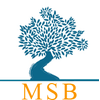Editors: Kemi Ogunyemi, Pan-Atlantic University, Lagos, Nigeria
Email Address: kogunyemi@lbs.edu.ng
Please send a one-page chapter proposal, dealing with or related to the themes to the editor’s email address
About the Book
Title: Teaching Ethics across the Management Curriculum (Volume 4)
Summary: This book series goes beyond the current literature by providing unique insights into the experience of seasoned academics regarding embedding business ethics into their teaching of the practice of management, especially in the light of new global happenings.The series provides faculty in business schools with knowledgeable discourse about the current ethical issues within their fields. Specifically, this call is soliciting chapter proposals from a multidisciplinary array of scholars.
Full Description
The need to embed business ethics in the teaching of management disciplines has at times given rise to a debate as to whether ethics should be taught as a standalone course or in an embedded manner. So far, the majority of the opinions favors a consensus that both approaches are relevant and should be used complementarily for optimal results. This book series goes beyond the current literature by providing unique insights into the experience of seasoned academics regarding embedding business ethics into their teaching of the practice of management, especially in the light of new global happenings.
The series provides faculty in business schools with knowledgeable discourse about the current ethical issues within their fields. The book fits into Area 1, educator guides, of the PRME Collection, as a supplementary textbook for the business student (to highlight ethical dilemmas for all the different managerial functional roles covered in the book) and a handbook for business faculty, and promotes PRME principles 1, 2 and 3. For example, a chapter on embedding ethics in teaching operations management in this digital world would be used by faculty and students as a supplement to the usual textbooks for operations management courses.
Principle 1 states: We will develop the capabilities of students to be future generators of sustainable value for business and society at large and to work for an inclusive and sustainable global economy. The ‘Teaching Ethics across the Management Curriculum’ series enables faculty to ensure that their students grasp the moral dimension of running a business whether it be at the moment of drawing up sustainable business plans, of raising finance, of appraising employees, of executing operation strategies, of buying software, or of implementing a customer loyalty plan. This latest addition to the series takes into consideration the ethical questions raised by new realities in today’s world.
Principle 2 states: We will incorporate into our academic activities and curricula the values of global social responsibility as portrayed in international initiatives such as the United Nations Global Compact. This objective of this book is precisely to facilitate this task for faculty.
Principle 3 states: We will create educational frameworks, materials, processes and environments that enable effective learning experiences for responsible leadership. The ‘Teaching Ethics across the Management Curriculum’ series provides a platform for faculty to share their experiences of how to teach ethical profitability with their peers. This contributes to resolving the concerns that faculty in other disciplines may experience when they wish to incorporate ethics into their teaching but may feel that they lack the preparation for doing this or ideas of how to go about it.
Specifically, this call is soliciting chapter proposals from a multidisciplinary array of scholars. Their aim should be to contribute to the knowledge of how to embed ethics in various management disciplines either by sharing knowledge and experiences related to current business realities of a globalized and digitized world, or by providing case studies that embed ethics in the their learning objectives apart from those specified for the course discipline. Thematic ideas about the former are listed in the tentative chapter content segment, below. Regarding the latter, for example, we welcome ethical decision-making cases to be used in teaching Strategy or Business Policy, Decision-Making, Entrepreneurship, Finance, Operations and Service Management, Marketing, Financial Accounting, Cost Accounting, Organizational Behavior, Management Communication, Team Building, Negotiation, Business Leadership, Project Management, Business Law, Macroeconomics, Microeconomics, etc. The multidisciplinary approach of the book is expected to make its content very rich (actual table of contents to be derived from accepted chapter proposals).
The Plan
Schedule for publication of the book:
· Book chapter proposals received: August 15, 2021
· Notification of accepted chapter proposals: August 22, 2021
· Receipt of full book chapters for review: November 28, 2021
· Peer review of book chapters and revision feedback: December 8 – 31, 2021
· Receipt by editors of final draft of book chapters: January 25, 2022
· Book delivered to the publisher: February 14, 2022
· Anticipated publication: August 15, 2022
Authors of selected proposals will be invited to submit full chapters for publication in this next volume in the series. Authors of accepted full chapters will be required to participate in the review process (two chapters each).
Please submit your chapter proposal as a Microsoft Word document attached to an email to kogunyemi@lbs.edu.ng no later than August 15, 2021.
We would appreciate a one-page proposal describing your chapter, identifying your discipline and outlining the broad scope of your proposed chapter content (preferably not exceeding 250 words). Please include as a separate Word file a brief biography covering your current institutional affiliation and position, a listing of your relevant publications and educational background, and or any other pertinent information on your qualifications for contributing to this manuscript (preferably not exceeding 250 words).
Please email all proposals and enquiries to Kemi Ogunyemi Associate Professor, Business Ethics, Sustainability Management, and Managerial Anthropology Lagos Business School, Pan-Atlantic University, Lagos, Nigeria


























